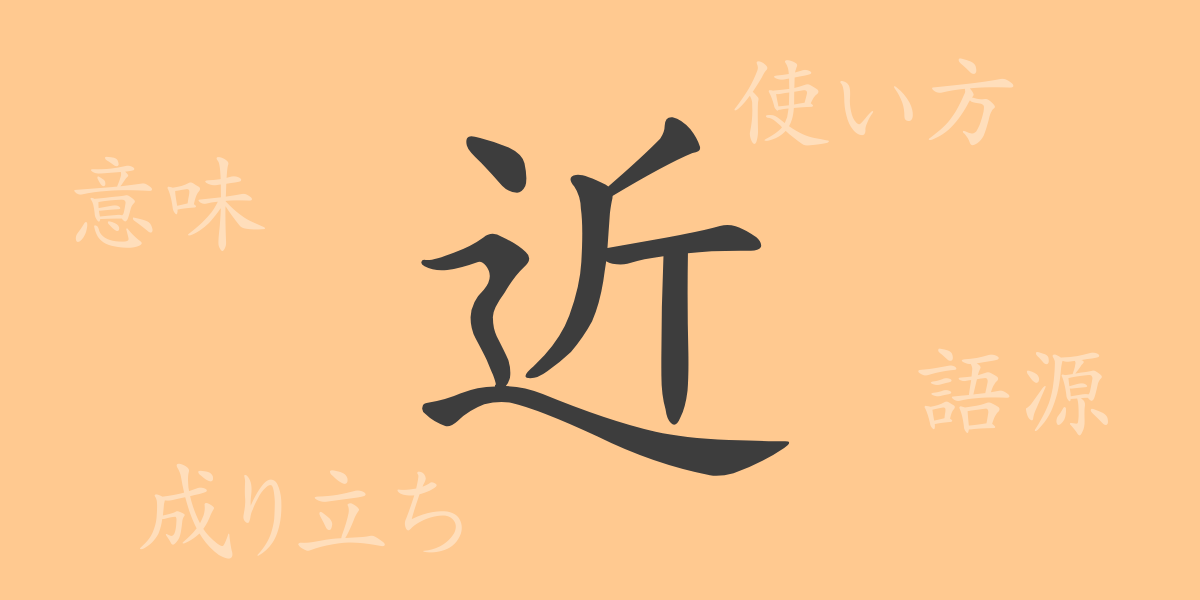In written Japanese, common kanji are essential for smooth communication and clear conveyance of meaning. “近(きん)” is one of the frequently used kanji that is closely related to our daily lives. In this article, we delve into the origins, meanings, readings, and idioms of the kanji “近(きん).” Let’s explore the depth of this kanji and its significance in Japanese culture and language.
Origins of 近(きん)
The kanji “近(きん)” originates from ancient China and derives from the pictograph of an axe. It initially mimicked the shape of an axe, which later evolved into the kanji “斤(きん).” Subsequently, “近(きん)” was formed by adding the radical “辵(しんにょう),” which signifies “walking feet,” to “斤(きん).” This combination conveys the meaning of “walking on a path cleared by an axe,” which eventually evolved into “approaching” or “being near.”
Meaning and Usage of 近(きん)
The kanji “近(きん)” means “to approach,” “near,” or “close.” It is commonly used to denote short physical distances or events occurring soon. Additionally, it signifies closeness in relationships or strong relevance. Given its diverse usage, this kanji appears in various contexts, enhancing the richness of Japanese expressions.
Readings, Stroke Count, and Radical of 近(きん)
The kanji “近(きん)” has multiple readings and distinct characteristics in Japanese.
- Readings: The on’yomi (Chinese reading) is “キン,” and the kun’yomi (Japanese reading) is “ちか.い.”
- Stroke count: “近(きん)” consists of 7 strokes.
- Radical: The radical is “辵(しんにょう),” which signifies “walking” or “advancing.”
Idioms, Expressions, and Proverbs Using 近(きん)
There are numerous idioms and expressions in Japanese that include “近(きん).” Here are some examples with their meanings:
- 近視眼的(きんしがんてき): A shortsighted view, focusing only on immediate matters without considering the future.
- 近所付き合い(きんじょづきあい): Social relationships and interactions with nearby residents.
- 近道(ちかみち): A shortcut or a shorter path to a destination.
- 近年(きんねん): Recent years or the past few years.
- 手近(てぢか): Something that is close at hand and readily available.
These expressions are frequently used in daily conversations, literature, and business communications.
Conclusion on 近(きん)
The kanji “近(きん)” is deeply rooted in our daily lives. From its origin to its diverse modern usage, this kanji enriches Japanese expressions. Understanding and using “近(きん)” correctly allows for more precise and rich communication. By learning the idioms and expressions introduced here, you can deepen your understanding of Japanese and its cultural nuances.

























